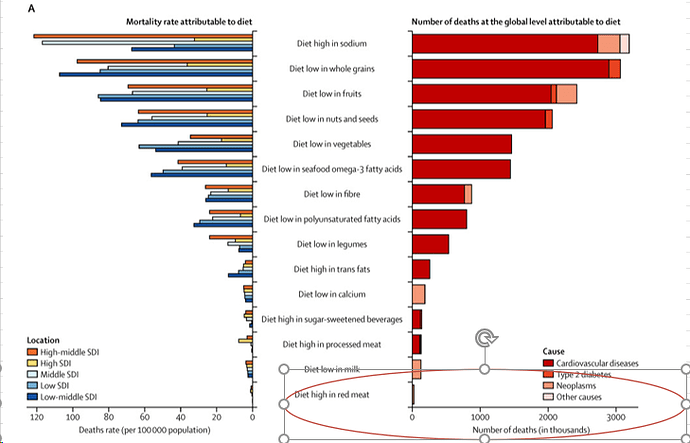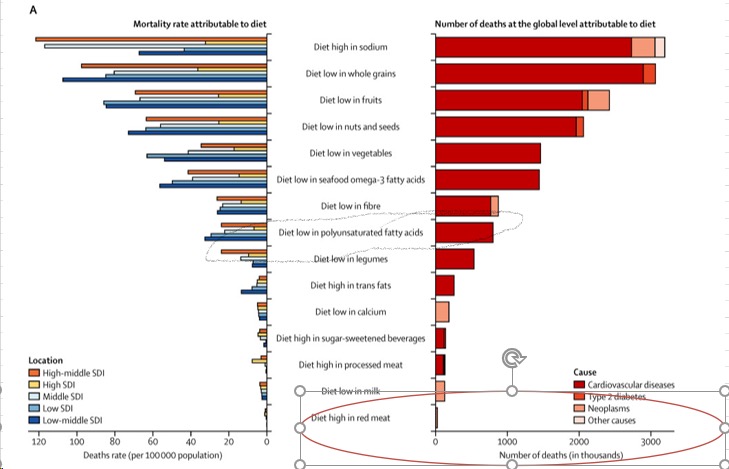Anybody see this? Seems like nothing is changing!
More new studies to counter
I loved that one comment stating that “the keyoto diet is just too stressful and complicated.” Methinks it was posted by a Sugar Foundation employee, lol!
It just makes me want to cry! I can forgive someone churning out this shit when they don’t know any better, but there is too much evidence in past years, for educated people to still be churning it out. This must surely count as medical negligence. SHOW US THE RUDDY SCIENCE. Its almost like a sick game of us and them.
Shocking!
More regurgitated horse shit
Well, of COURSE a diet high in salt leads to cardiovascular disease
And of COURSE everyone knows red meat is bad for you
Red meat causes diabetes, so you know it’s GOT to be bad for you. 
All based on sugar burners? (no where near 20 grams of carbs?)
”…The latest analysis used estimates of countries’ eating habits to pin down how often diet was shortening lives.
The dangerous diets were those containing:
1. Too much salt - three million deaths
If your a high carb sugar burner? The longer you remain in ketosis the less you need eventually!
2. Too few whole grains - three million deaths
“…As soon as you grind the grains, it becomes exposed to oxygen and you lose a good amount of the nutrition within days. So when you buy whole grain bread or refine grain products, you have no idea when that grain was ground into flour. Yes, whole grains has all the parts of the grain, but it’s still exposed to oxygen and thus a denatured product. Then you have the issue of gluten, and it is also very high on the glycemic index scale. …” …More
3. Too little fruit - two million deaths
”…Free fructose vs. naturally occurring: So, too much fructose is no good. However, it is important to differentiate between free or added fructose over the fructose packaged into whole foods. It is generally agreed that consuming fructose when encased in its natural form, such as in fruit and vegetables, isn’t of concern. …” …More
Low levels of nuts, seeds, vegetables, omega-3 from seafood and fibre were the other major killers.
I Agree!
“We find that diet is one of the dominant drivers of health around the world, it’s really quite profound,” Prof Christopher Murray, the director of the Institute for Health Metrics and Evaluation at the University of Washington told the BBC. …” …More



